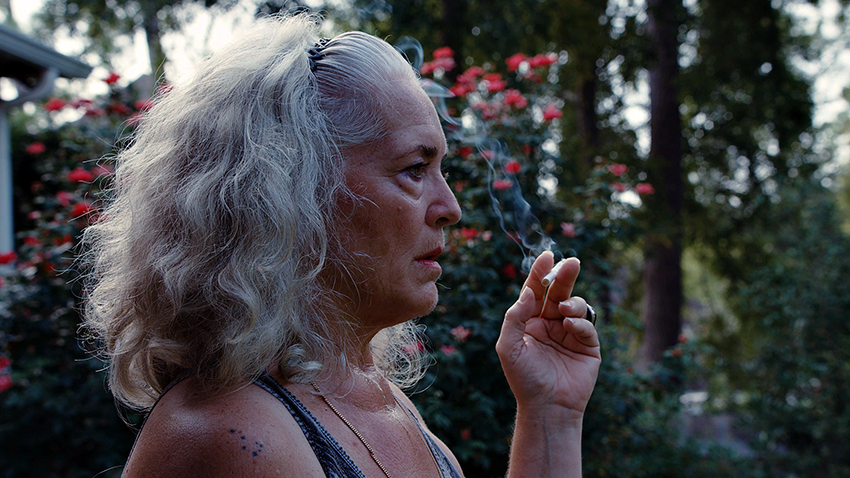According to Maya Angelou, “the ache for home lives in all of us, the safe place where we can go as we are and not be questioned.” Former UT student Trey Edward Shults’s second directorial work, “Krisha,” puts this assertion to the test, using experimentalism and raw emotion to counter her optimistic claim.
In the award-winning drama, a recovering alcoholic, Krisha (Krisha Fairchild), decides to visit her family for the first time in 10 years. Though hopeful about her visit, Krisha quickly senses profound tension, particularly between her and her son, Trey (Trey Edward Shults). Krisha’s efforts to reconcile with loved ones, make up for lost time and move on from her dark past unfold over the course of the visit, demonstrating her search for love amid personal and domestic crises. Her family’s inability to see past her mistakes thus serves as the film’s central conflict — one that leaves Krisha to return to the bottle and wallow in the pain of neglect and regret.
From the start of the film, Shults affirms that “Krisha” will be an experimental and emotional endeavor. The opening shot, in which Krisha stares at viewers with profound pain in her eyes, is immediately followed by a seven-minute single take in which she returns to her distant family. The awkward moments that unfold confirm the impact of her decade-long absence, indicating that broken bonds and the path to redemption will persist over the remainder of her visit. The scenes that follow unfold as seamlessly — and sincerely — as those of the typical family gathering, with Krisha serving as the broken chord in the symphony of reunion.
Shults excels in depicting the emotional turmoil that plagues Krisha and her loved ones, alternating between sweeping shots and substantive dialogue with the fluidity of an experienced director. Combined with its fast-paced editing and broken score, “Krisha” successfully situates viewers in the emotionally tense household, observing the gathering from an omniscient perspective that evolves to become the protagonist’s perspective. Whereas most directors use external elements to contribute to a character’s development, Shults uses them to develop the family dynamics and dictate the events that transpire, indicating a creative excellence that only the best of directors possess.
Within the frame itself stands one of the best performances to have graced an independent film — that of Krisha Fairchild, whose first-time cinematic endeavor is as refined as that of an experienced actress. Krisha’s vulnerability and distress manifest with absolute finesse, confirming that Fairchild, inexperienced as she may be, is an on-screen force to be reckoned with. A character as complex as Krisha’s requires distinct nuances and stages of emotion to be given an appropriate portrayal. On all fronts, Fairchild does justice to the character she embodies, tugging at viewers’ hearts with her well-portrayed meltdowns and moments of frustration and pain.
Shults complements Fairchild’s power with a screenplay as raw as dysfunction permits. The relatively short drama is as structured as any great film, never wasting a moment or missing a beat to extend its runtime. The dialogue that drives “Krisha” is grounded in a type of realism that cinephiles have long yearned for, satisfying the thirst for hard-hitting discussions and incredibly raw moments. The issues that present themselves are as poignant and relevant as those that haunt viewers, showcasing a rare genius in storytelling that truly transcends the silver screen.
“Krisha” is a bona fide treat that stays with viewers long after the credits roll. Its ingenious direction, emotional screenplay and experimental visuals help craft a work of art that truly exceeds expectations, marking the start of many successful endeavors for novice director Trey Edward Shults.
“Krisha”
Running Time: 83 minutes
Rating: R
Score: 4/5 stars





















